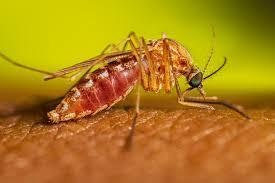West Nile Virus: The Most Common Mosquito-Borne Disease in the U.S.

As summer temperatures rise, so does the threat of mosquito-borne illnesses. West Nile virus, now the most common mosquito-borne disease in the U.S., continues to be a significant health concern. First identified in the U.S. in 1999, the virus has led to over 2,500 cases reported across the country last year. In 2024, 11 states, including Tennessee, have already confirmed 15 cases, with half resulting in serious illness requiring hospitalization.
Mosquitoes pick up the virus when feeding on infected animals, birds, reptiles, or humans. The virus multiplies within the mosquito and is transmitted to the next host via the mosquito’s saliva during its next blood meal. Unlike some viruses, West Nile is not spread from person to person.
Symptoms of West Nile virus can take anywhere from three days to two weeks after a mosquito bite to appear. While 80% of people infected show no symptoms, those who do may experience fever, muscle aches, headaches, swollen lymph nodes, and nausea. In rare cases, about 1 in every 150 infections, the virus can cause severe illness, such as meningitis (inflammation of the membranes surrounding the brain and spinal cord) or encephalitis (inflammation of the brain tissue). Symptoms of severe illness include high fever, stiff neck, muscle weakness, seizures, and even paralysis. These cases require immediate medical attention.
Unfortunately, there is no specific treatment for West Nile virus. Mild to moderate symptoms are managed with medications typically used for cold and flu. In severe cases, hospitalization may be necessary, with treatment including oxygen therapy, IV fluids, corticosteroids, and antiseizure medications. While vaccines exist for horses, no vaccine has been approved for human use at this time.
Older adults and individuals with weakened immune systems are at a higher risk of severe complications. Residents are urged to take preventive measures, such as using insect repellent and removing standing water, to reduce the risk of mosquito bites.
